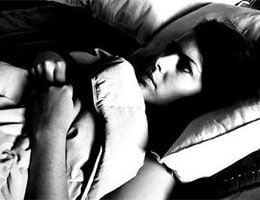 The idea of postpartum refers to the puerperium : the period that begins immediately after childbirth and extends until the woman recovers the state she had before pregnancy. The term can also be mentioned as postpartum , according to what is accepted by the Royal Spanish Academy ( RAE ) in its dictionary.
The idea of postpartum refers to the puerperium : the period that begins immediately after childbirth and extends until the woman recovers the state she had before pregnancy. The term can also be mentioned as postpartum , according to what is accepted by the Royal Spanish Academy ( RAE ) in its dictionary.
It is usually indicated that the postpartum period lasts between six and eight weeks , during which time the body of the person who gave birth recovers its pre-pregnancy characteristics. This involves the development of a series of changes in the reproductive system and at the hormonal level.
The first twenty-four hours after delivery make up the so-called immediate postpartum . This is a stage in which the new mother must undergo medical checks to confirm her state of health . During this period, postpartum hemorrhage , which is a heavy loss of blood that can cause death, is particularly dangerous.
Postpartum depression , on the other hand, can appear up to a year after giving birth, although it most often occurs before the baby is three months old. This mental disorder is characterized by lack of energy and appetite, insomnia, and a low mood.
According to various studies, postpartum depression is associated with stress and hormonal changes . It would also have a link with a possible biological predisposition.
Postpartum psychosis , meanwhile, is a rare mental illness. The woman who suffers from it suffers hallucinations, loses her sense of reality and experiences a serious alteration in her behavior.
In itself, psychosis is called a mental state that is described as a "cut" between the patient and the reality that surrounds him. The person who suffers from this condition is called psychotic . It is important to note that this term is considered generic, in that it does not define a single condition, a single disease. On the other hand, although some confuse it with psychopathy , they have no relationship.
 To the aforementioned symptoms of postpartum psychosis we must add alterations in one's ideas and behavior, disorientation and false recognitions. It is a very rare phenomenon, which occurs in 0.2 percent of pregnancies and is not equivalent to postpartum depression, although this can lead to psychosis if not treated in time. On the other hand, there is the so-called baby blues , an excess of emotionality and anguish that almost all mothers experience during the first days of their babies' lives; It is not a disease, but a natural consequence of the long gestation process and the "separation" of the child.
To the aforementioned symptoms of postpartum psychosis we must add alterations in one's ideas and behavior, disorientation and false recognitions. It is a very rare phenomenon, which occurs in 0.2 percent of pregnancies and is not equivalent to postpartum depression, although this can lead to psychosis if not treated in time. On the other hand, there is the so-called baby blues , an excess of emotionality and anguish that almost all mothers experience during the first days of their babies' lives; It is not a disease, but a natural consequence of the long gestation process and the "separation" of the child.
Needless to say, postpartum psychosis requires medical treatment , as does depression, which is considered less serious and lasts less time. Irritability and insomnia usually appear before more serious symptoms appear. This disease was documented in ancient Greece, although under another name.
Each woman has a different degree of predisposition to postpartum psychosis. In addition, those who have suffered from it are more likely to have bipolar disorder. Regarding the causes, the stress of childbirth and the hormonal alterations that follow are those that are mentioned most frequently; However, it is known that treating this psychosis with hormones is not effective.
Postpartum psychosis is also related to unwanted pregnancy, unhappiness in marriage or limitations in life due to pregnancy, among other issues. There are cases in which its appearance is attributed to the presence of other diseases , such as postpartum thyroiditis, some autoimmune disorders and Sheedan syndrome (an infarction of the pituitary gland).
